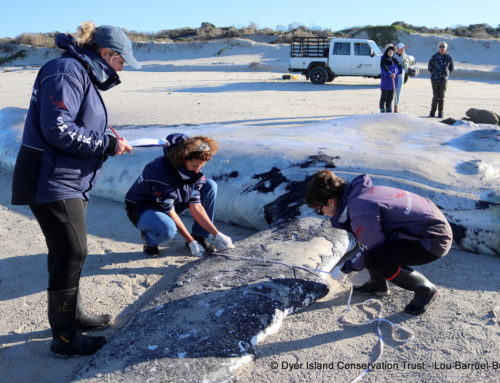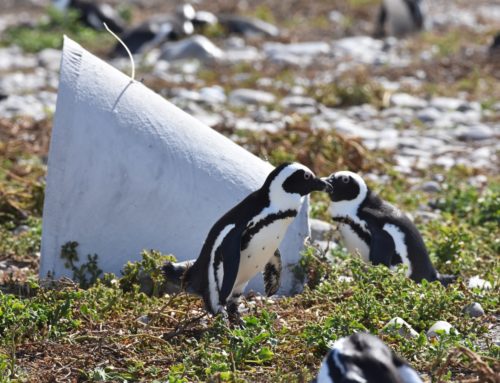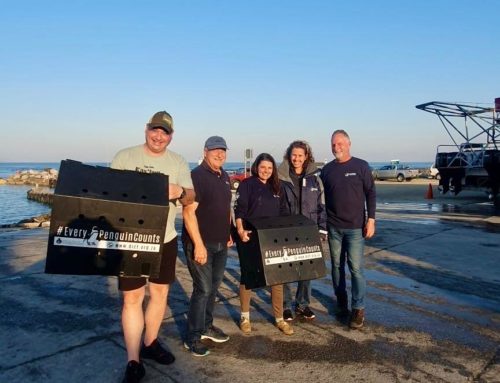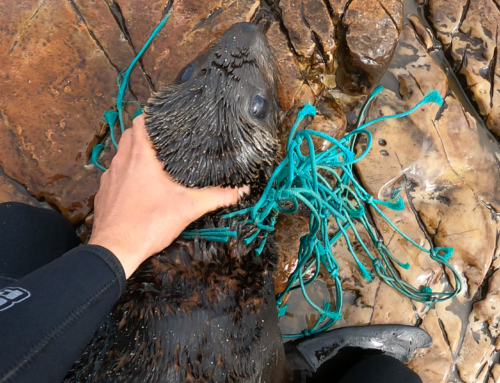Children’s Day is not just a day of fun and games; it’s also an opportunity to educate and inspire the next generation about important issues, such as marine ecology. As we celebrate this special day dedicated to the well-being and happiness of children, let’s delve into the fascinating world of marine ecology and discover how we can instill a love for the ocean in young minds. The Dyer Island Conservation Trust, Marine Dynamics, and The Cape Whale Coast Tourism collaborated to provide meaningful opportunities to explore the marine ecology for young learners from Masakhane Primary School to explore marine ecology. Through engaging activities that combine environmental education with hands-on experiences, we aim to raise awareness about marine litter and the plight of the critically endangered African penguin.
The Importance of Marine Ecology Education:
Marine ecology is the study of the relationships between marine organisms and their environment. It encompasses a wide range of topics, including marine biodiversity, ocean ecosystems, and the impact of human activities on the ocean. By educating children about marine ecology, we can help them develop a deeper appreciation for the ocean and understand the importance of conserving marine resources for future generations.
Engaging Activities for Children:
- Ocean-themed Painting: We encourage children to unleash their creativity by painting the iconic African penguin. Through art, they can imagine themselves diving into the ocean and exploring its wonders, fostering a deeper connection with marine life.
- Beach Clean-Up: Organizing a beach clean-up activity allows children to actively participate in removing litter and plastic pollution from shorelines. This hands-on experience not only teaches them the importance of keeping our oceans clean but also instils a sense of responsibility towards protecting marine life from harm.
- Marine Animal Crafts: Using recycled materials collected from beach clean-ups, children can get creative with arts and crafts by making sea creatures. This activity not only enhances their artistic skills but also teaches them about different marine species and the importance of conservation.
As children learn about marine ecology, it’s crucial to empower them to become stewards of the environment. By taking simple actions such as reducing plastic waste and conserving water, children can make a positive impact on the health of our oceans. Through education and hands-on experiences, they can become ambassadors for marine conservation in their communities.
Pinkey Ngewu of the Dyer Island Conservation Trust beautifully sums it up, “On this Children’s Day, let’s celebrate the curiosity, creativity, and enthusiasm of young minds by immersing them in the wonders of marine ecology. Together, let’s cultivate a deep-rooted love for marine life and foster a brighter, more sustainable future for our planet.” As we celebrate Children’s Day, let’s remember the importance of educating and inspiring the next generation about marine ecology, empowering children to become advocates for marine conservation and protectors of our precious oceans. Together, let’s work towards a brighter and more sustainable future for all.
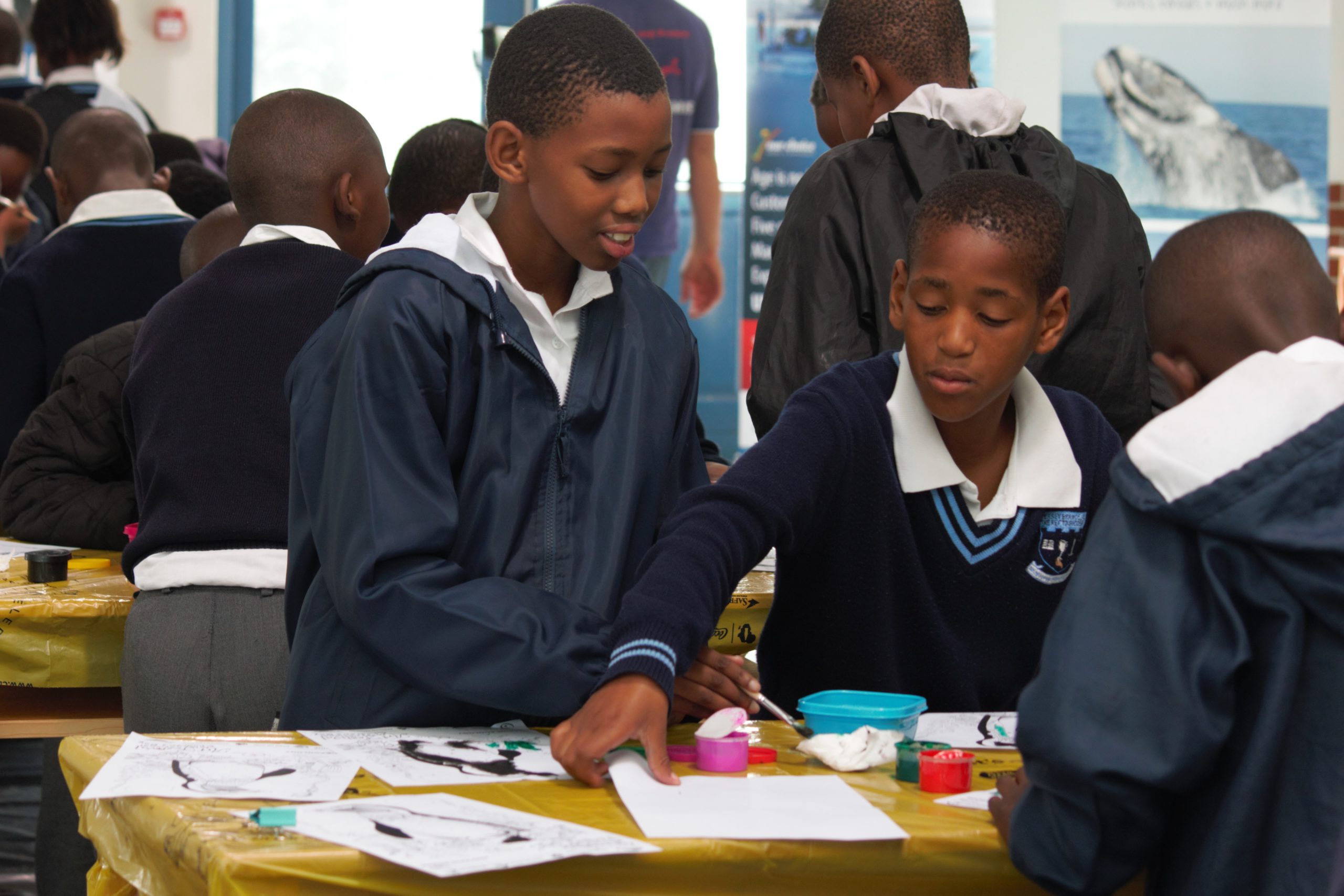
Learners from Masakhane Primary School painting
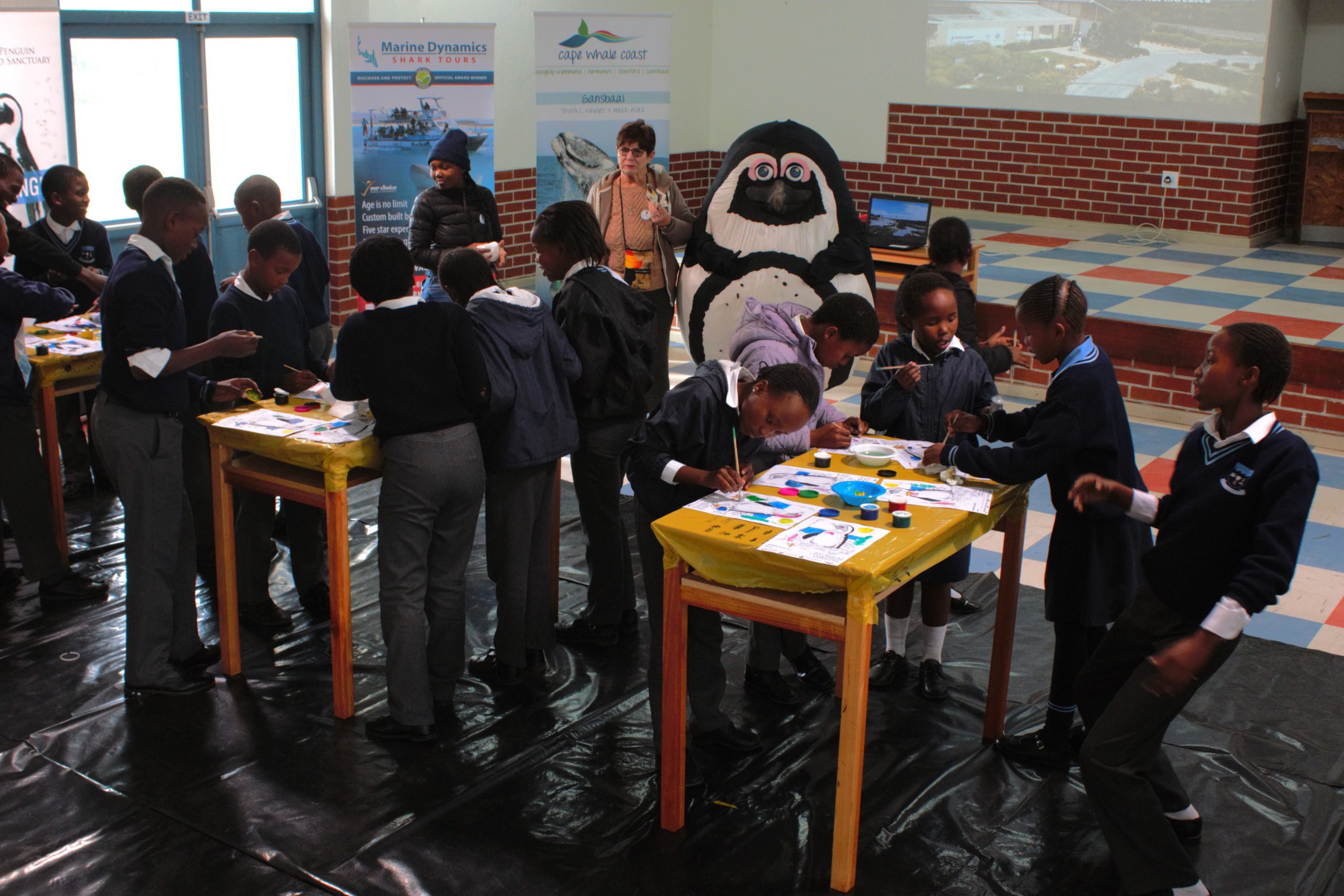
African penguin mascot joining the children as they continue painting
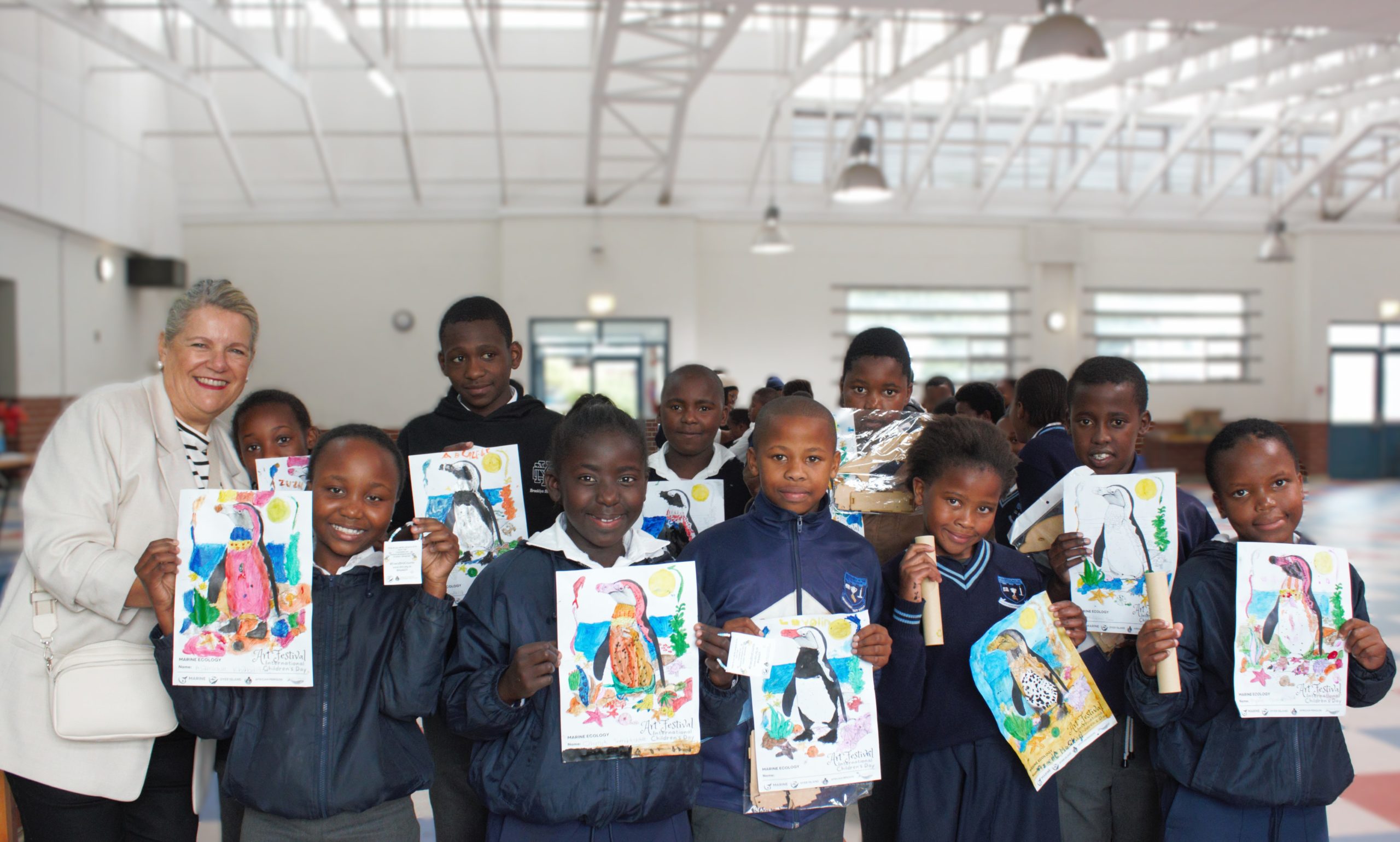
Frieda Lloyd of the Cape Whale Coast Tourism office joined the children to paint the African penguin
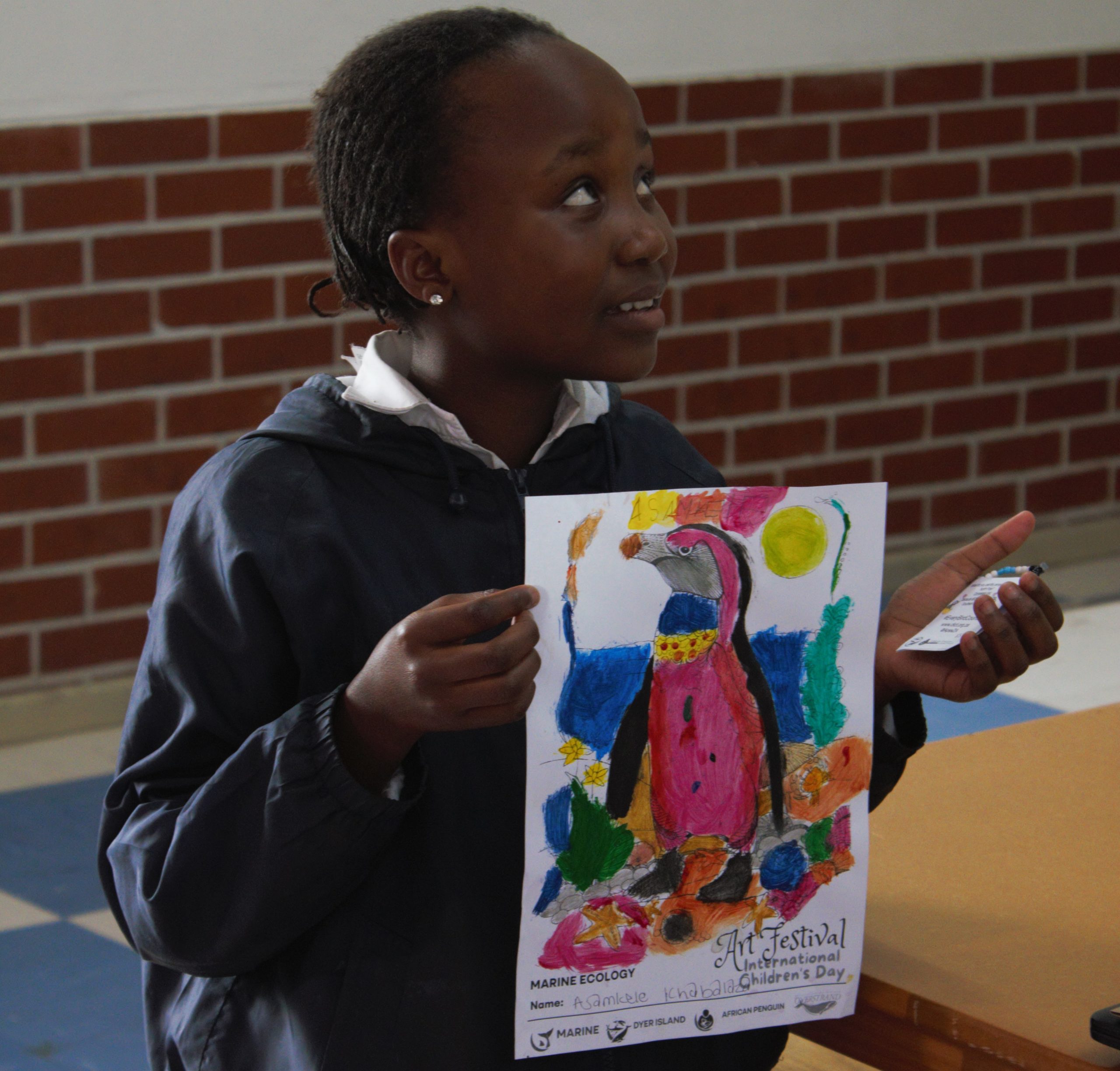
Colorful African penguin by one of the Masakhane learners


